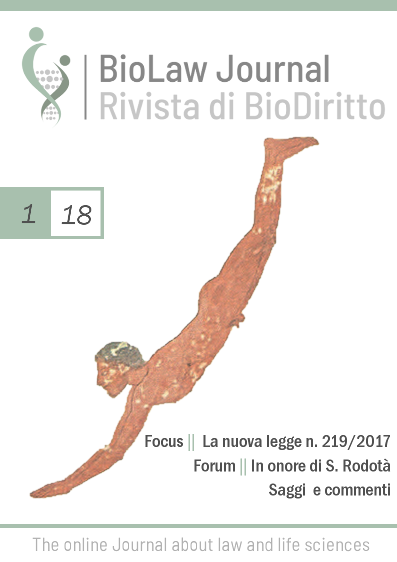A Right to Health Perspective on Embryo Research: Synergies, Gaps and Opportunities
DOI:
https://doi.org/10.15168/2284-4503-300Parole chiave:
Embryo Research, Health, Human Rights, Stem Cells, Regenerative MedicineAbstract
The significant progress made in biology research has revealed the key role of human stem cells in the discovery of medical treatments. What has emerged, in particular, is the revolutionary capability of human embryonic stem cells (hESCs) to differentiate into any other specialised cell of the human body. The capability to be pluripotent makes these cells as an essential and invaluable resource for both the analysis of the embryos themselves and the discovery of new therapies for untreated diseases. However, because hESCs are derived from the inner mass of a blastocyst – a very early embryo – some ethical concerns arise about the need to destroy a human embryo to extract the cell lines. In some States, including Italy, such concerns have led to legal restrictions at the national level, such as the absolute ban to donate supernumerary embryos left over after fertility treatments and no more intended for implantation, for research purpose.
Attention is dedicated to the relevant synergies and worrying gaps that exist between embryo research and the right to the enjoyment of the highest attainable standard of health. The final goal is to identify potential opportunities to maximise the benefits of scientific progress and ensure compliance between embryo research and the right to health. It is worth noting that, although the right to the benefits of science and its applications and the right to life are addressed throughout the research, this work primarily focuses on the right to health.





